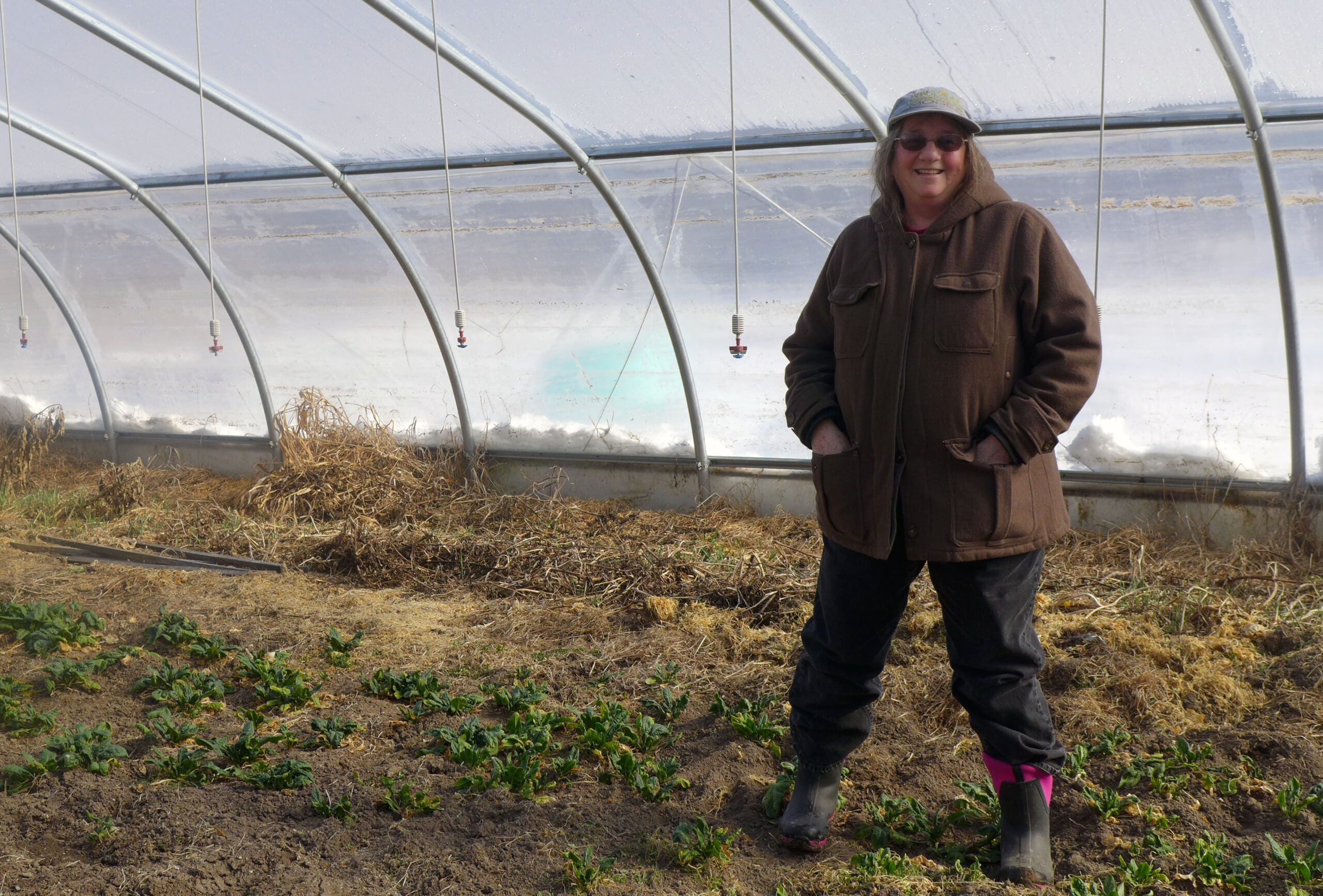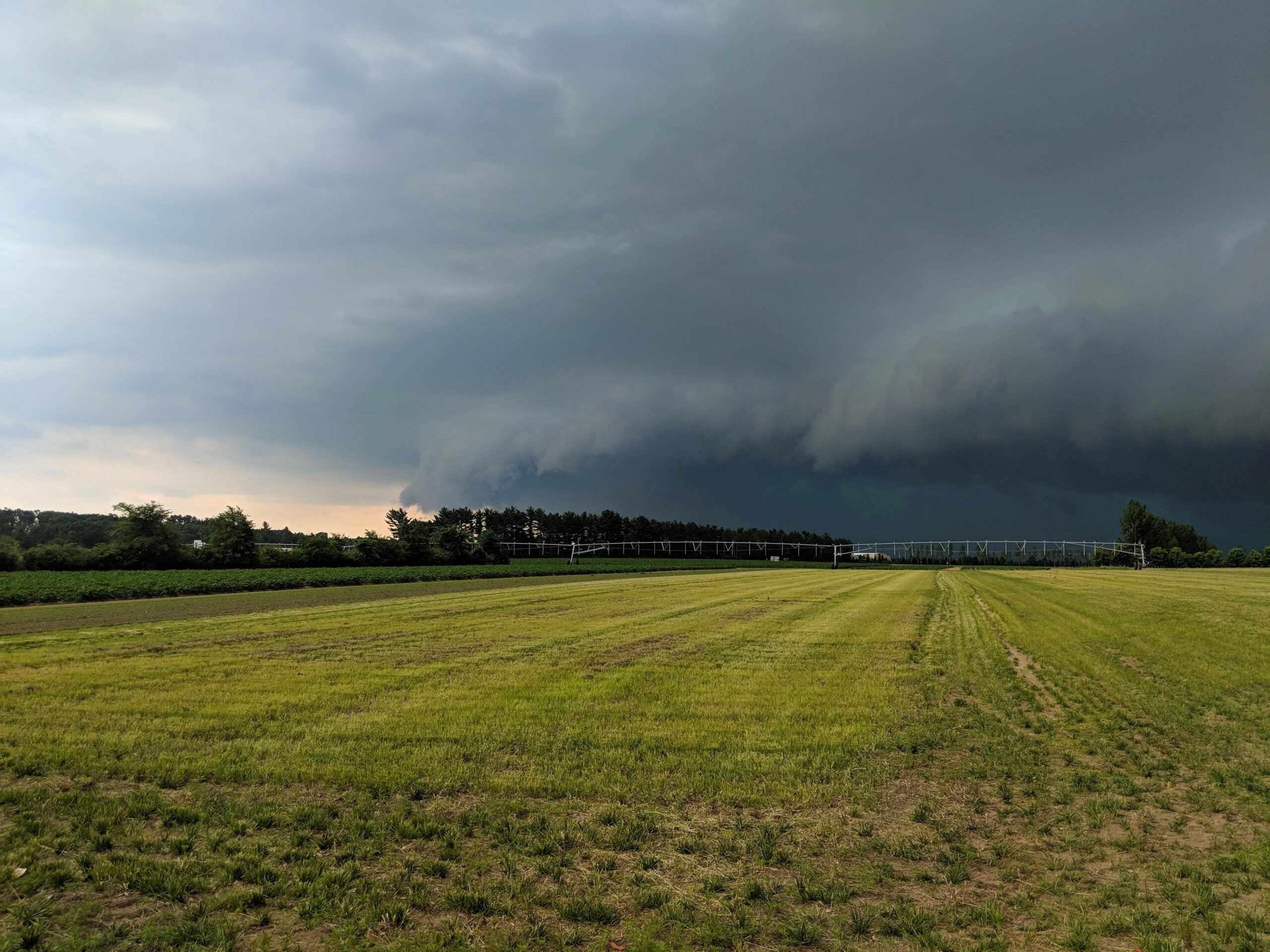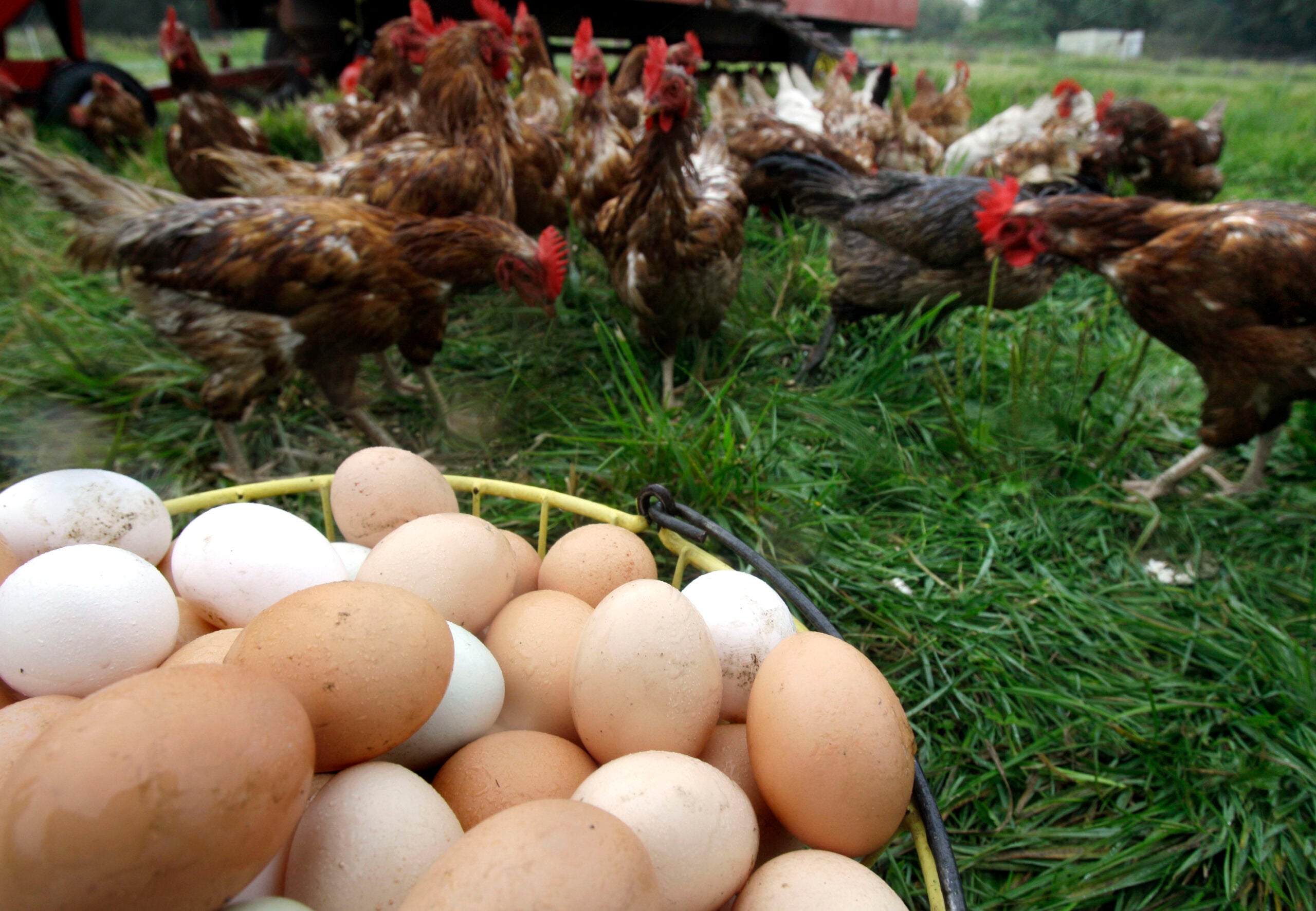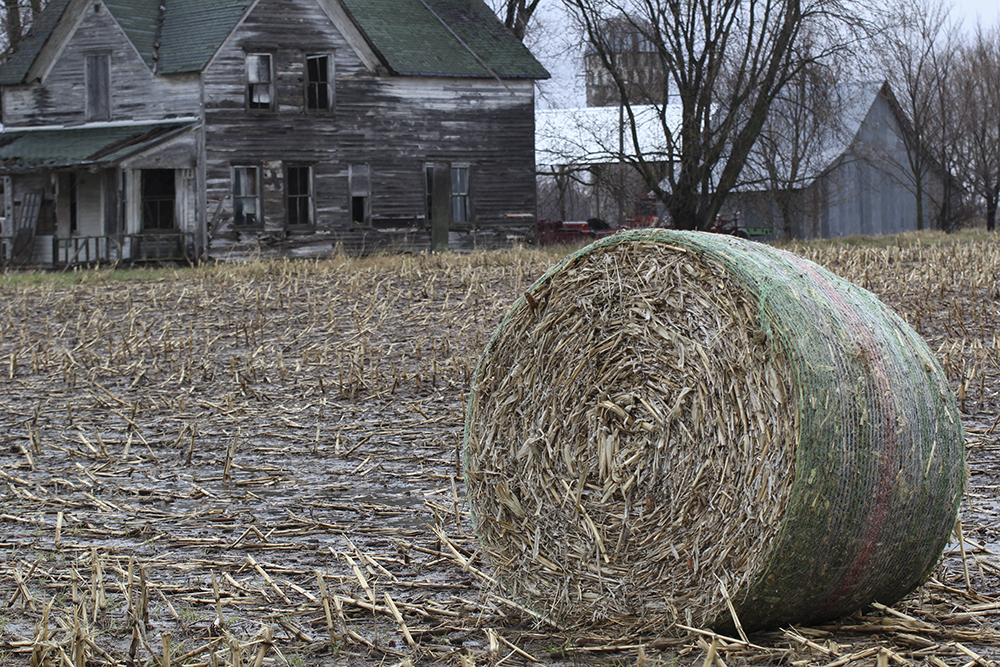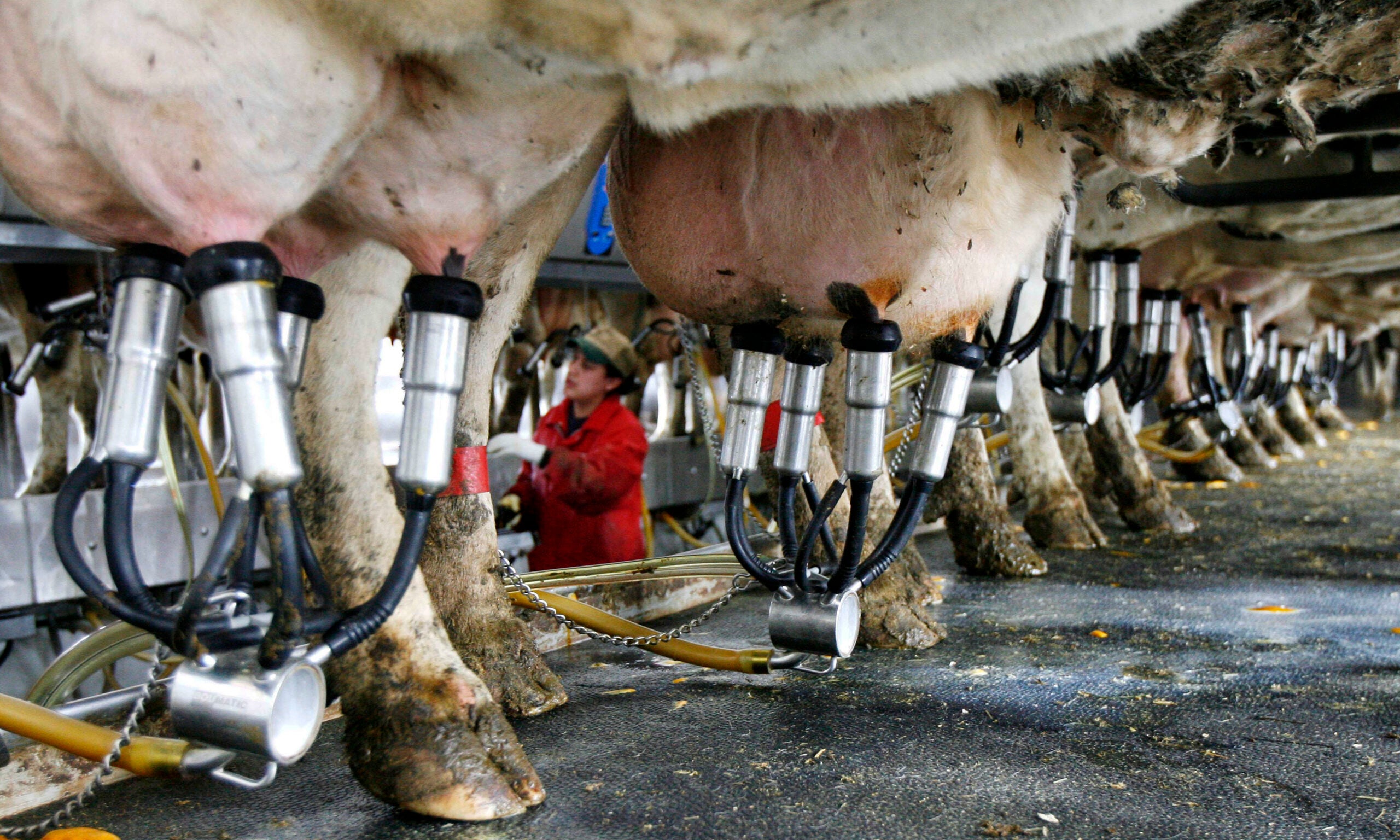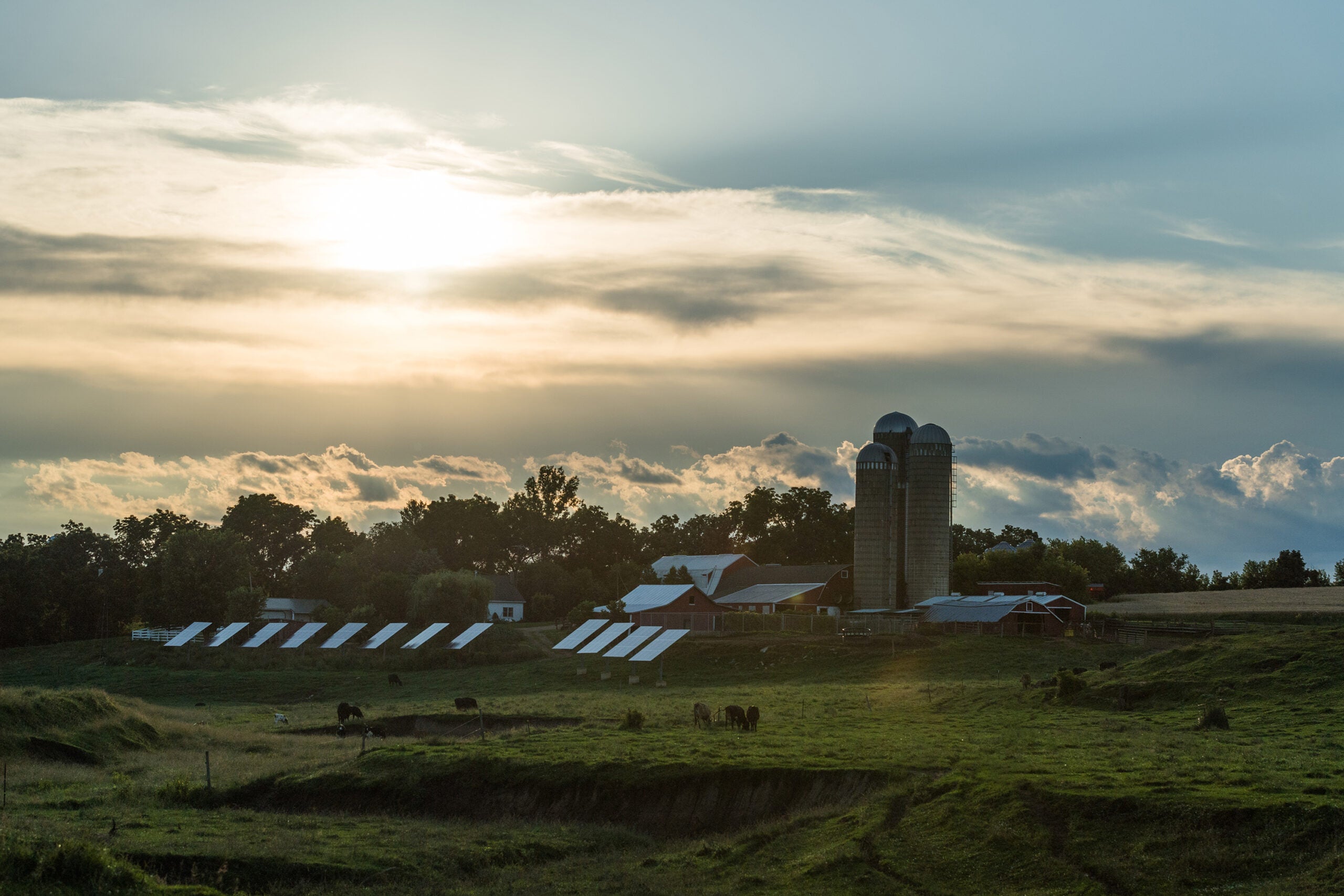Harriet Behar uses a high tunnel on her farm near Gays Mills to grow organic spinach. Similar to a greenhouse, the high tunnel has heavy translucent plastic which insulates the plants from the cold. She can get around seven cuttings of spinach over the winter, a pretty productive crop for her farm.
But when it comes to competing with hydroponic operations, where spinach is grown indoors in nutrient-filled water, Behar said it’s hard for her to keep up.

In this October 2015 file photo, a sign and a pile of compost are displayed during a protest in Stowe, Vt., by opponents of federal rules that allow crops raised in hydroponic systems to be labeled organic. Wilson Ring/AP Photo
Stay informed on the latest news
Sign up for WPR’s email newsletter.
“It’s kind of like food on steroids because they’re in a controlled environment,” Behar said. “They don’t have wind, no sun, I mean they’re under lights. This is a big difference.”
The U.S. Department of Agriculture allows hydroponic operations to be certified as organic. But farmers across the country have been debating for almost a decade whether these soil-less farms really meet the standards for their industry.
Those in the hydroponic industry say their operations do meet the standards for organic.
“We don’t use the herbicides or the pesticides or (genetically modified) seeds, and we don’t build up any chemicals in the soil from spraying that stuff,” said Bryan Ernst, owner of Ernessi Farms, a hydroponic operation growing vegetables and herbs in Ripon.

Baby basil are planted in PVC piping through which nutrient infused water flows at regular intervals, in this June 2013 file photo in Pahrump, Nev.Julie Jacobson/AP Photo
But Behar said organics isn’t just about avoiding pesticides or GMOs.
“When my inspector comes here, they look around and they say, ‘What are you doing to enhance the natural resources of your operation?’ And I have to kind of list things that I am doing every year proactively to bring in pollinator habitat, to protect wildlife, to enhance soil and water quality,” Behar said.
Behar said indoor operations don’t have to follow the same standards. It’s just one example of how she and other traditional organic farmers say the National Organic Program is allowing some producers to break the rules.
Behar points to watchdog reports about large poultry and dairy farms that are certified despite questions about whether they’re following animal welfare standards. Under the Obama administration, the USDA began developing standards to address these issues, but the agency withdrew the final rule in March, saying it would exceed the USDA’s statutory authority.
“It’s an economic hit to our Wisconsin dairy producers,” Behar said. “The whole point why many of us supported the organic program inside the USDA is that we would have a consistent label and everyone would have to follow the same rules.”
Now, Behar said many producers feel the USDA organic label doesn’t guarantee the same quality that it once did. So they’ve come together to start the Real Organic Project and create their own label.
“We see the organic standard as it is now as our foundation but we just want to kind of clarify things because the original rule was written in a more general way,” Behar said. “We’re trying to put some meat on those bones and make it clearer these are the rules that everyone has to follow.”
The group has released provisional standards, which include requiring crops be grown in soil and several of the animal welfare standards dropped by the USDA.

Natalie Parker (CC BY-NC-ND 2.0)
But traditional organic farmers aren’t the only ones frustrated with the National Organic Program. Some hydroponic producers say they also think the organic label has lost some of it’s integrity.
“Indoor farm is really starting to adopt a post-organic philosophy. The reason for that is really with how produce is being certified organic,” Ernst said.
Ernst said he thinks consumers would be disheartened if they knew that organic farmers can use some National Organic Program-approved pesticide products on their crops. That’s part of the reason he stopped pursuing certification after he started his indoor farm four years ago.
Ernst said he feels like the organic industry is commercially driven and he doesn’t think indoor farms like his need the label to be successful.
“Just because customers see the USDA organic little symbol on the clamshell doesn’t necessarily give all the customers all of the information they’re looking for,” Ernst said. “Our philosophy really is that it’s more important to know where your food comes from, how its grown, how fresh it is, were any chemicals used. That’s really more important than just seeing that organic label.”
Some in the industry worry that if farmers continue to lose faith in the USDA seal, it could hurt the force that has made organic worth a premium.
John Mesko, executive director of the Midwest Organic and Sustainable Education Service, said the USDA does not promote organic food as being worth more than conventionally produced food.
“The real value that gets added to the organic label has come from farmers, food producers and distributors, retailers, co-ops. All of those folks have been the ones promoting organic and the certified organic label as beneficial,” Mesko said.
Mesko said he respects the farmers involved in the Real Organic Project for challenging the USDA on these important issues. But he said organic producers needs to remain united in order for the industry to keep growing.
“We have to proceed as a community with caution to make sure that we don’t create so much confusion that we lose the momentum behind the broader organic movement,” Mesko said.
Harriet Behar doesn’t see the Real Organic Project’s add-on label as a reason for division. In fact, she’s hoping it will be a rallying cry for farmers across the country.
“This might be a push to the national organic program to improve what they’re already doing, to kind of show that the organic community wants to do this and if they’re not going to do it, we’re going to do on our own,” Behar said.
Behar said consumers will start to see the new organic add-on label on products in 2019.
Wisconsin Public Radio, © Copyright 2025, Board of Regents of the University of Wisconsin System and Wisconsin Educational Communications Board.
